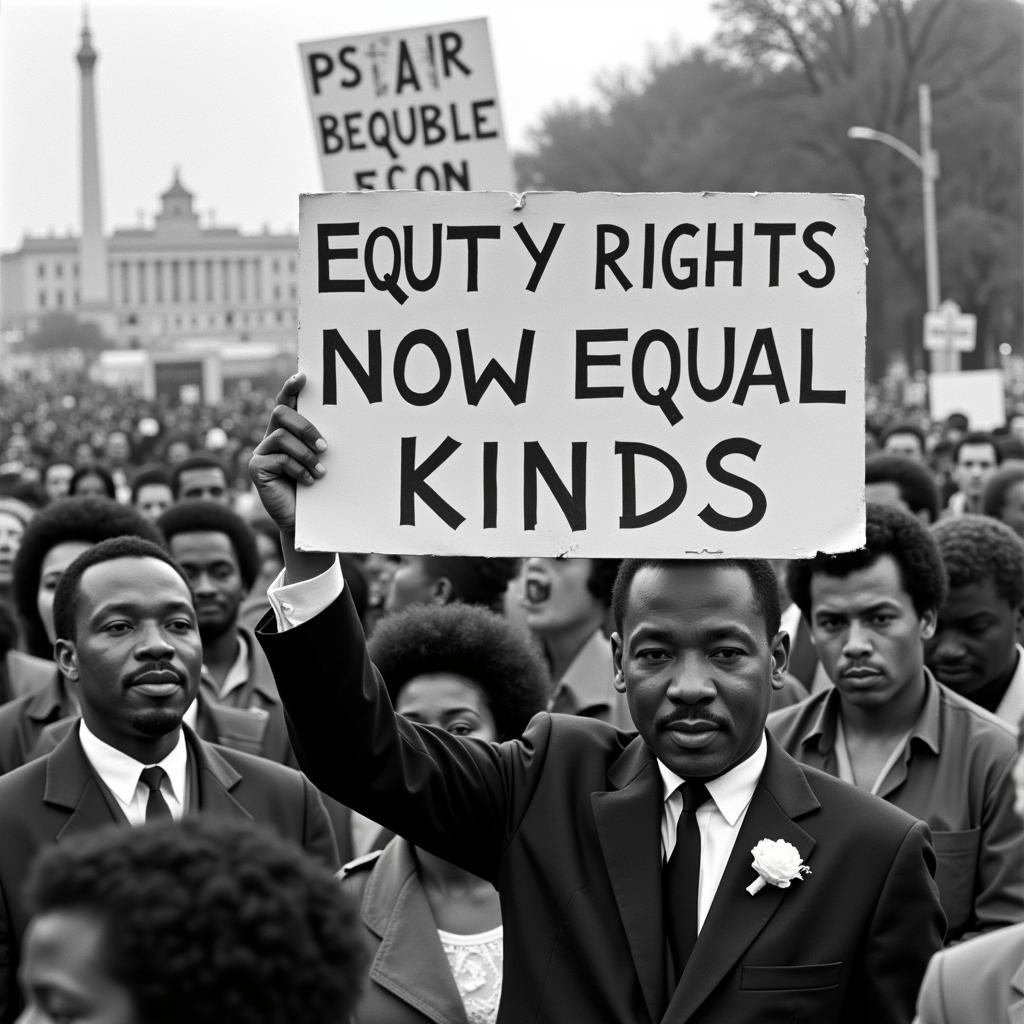Martin Luther King Jr.’s profound message about the three evils of society—racism, poverty, and war—continues to resonate powerfully today. These interconnected forces threaten the fabric of our global community, demanding our attention and collective action. King’s vision of a just and peaceful world necessitates confronting these evils head-on.
Understanding the Three Evils According to Martin Luther King
King argued that racism, poverty, and war are not isolated issues but rather intertwined systems of oppression that perpetuate injustice and inequality. He believed that addressing any one evil required tackling the other two. His understanding of these evils was deeply rooted in his experience with the Civil Rights Movement and his commitment to nonviolent resistance.
Racism: A Deeply Rooted Evil
King witnessed firsthand the devastating impact of racism, a system that denies individuals their fundamental human rights based on the color of their skin. He recognized that racism fostered division, hatred, and violence, hindering the progress of society as a whole. King challenged us to dismantle racist structures and create a society based on equality and justice.
Racism isn’t simply individual prejudice; it’s embedded within institutions and societal norms. King emphasized the importance of fighting for systemic change through nonviolent means, advocating for legislation that would protect the rights of all citizens, regardless of race.
 Martin Luther King Jr. Fighting Racism
Martin Luther King Jr. Fighting Racism
Poverty: The Deprivation of Basic Human Needs
King understood that poverty strips individuals of their dignity and agency, denying them access to basic necessities such as food, shelter, and healthcare. He saw poverty as a form of violence that perpetuates suffering and limits opportunities for individuals to reach their full potential. He argued that a just society must prioritize the well-being of all its members, ensuring that everyone has the means to live a dignified life.
King believed that poverty was a consequence of societal structures, not individual failings. He advocated for economic justice and policies that would lift people out of poverty, creating a more equitable distribution of resources.
War: The Ultimate Expression of Violence
King recognized war as the ultimate manifestation of violence, destroying lives and communities while diverting resources from vital social programs. He viewed war as a moral failure, a tragic consequence of humanity’s inability to resolve conflict peacefully. He called for a world free from the scourge of war, where nations would cooperate to address global challenges and build a more peaceful future.
King’s unwavering commitment to nonviolence extended to his opposition to war. He argued that true peace required more than just the absence of armed conflict; it demanded addressing the root causes of violence, including racism and poverty.
The Interconnectedness of the Three Evils
King consistently emphasized the interconnected nature of racism, poverty, and war. He argued that addressing any one of these evils required confronting the other two. For instance, he recognized that racism fueled poverty and contributed to war, while war exacerbated both poverty and racial injustice.
martin luther king three evils of society provides further insight into this crucial concept. He envisioned a “beloved community” where these evils would be eradicated, replaced by justice, equality, and peace.
King’s Legacy and the Ongoing Struggle
Martin Luther King Jr.’s legacy continues to inspire us to strive for a better world. His teachings on the three evils of society remain as relevant today as they were during his lifetime. While significant progress has been made in addressing these evils, much work remains to be done.
martin luther king three evils of society calls us to action. We must continue to fight for racial justice, economic equality, and a world free from war. By working together, we can build the beloved community that King envisioned—a world where all people can live in peace and dignity.
Conclusion
Martin Luther King Jr.’s identification of racism, poverty, and war as the three evils of society provides a powerful framework for understanding the challenges we face today. By confronting these interconnected evils, we can create a more just and peaceful world for all. King’s legacy reminds us that the struggle for justice is ongoing and requires our unwavering commitment.
FAQs
- What are the three evils of society according to Martin Luther King? Racism, poverty, and war.
- How are the three evils connected? They are intertwined systems of oppression that perpetuate each other.
- Why did King oppose war? He saw it as the ultimate expression of violence and a moral failure.
- What is King’s “beloved community”? A vision of a society free from racism, poverty, and war.
- How can we address the three evils? Through collective action, advocacy, and a commitment to nonviolence.
- What is the relevance of the three evils today? They remain significant challenges that require our continued attention.
- How can we honor King’s legacy? By continuing the struggle for justice and equality for all.
For further information and support, please contact us: Phone: 02043854663, Email: [email protected], or visit us at: Khu 34, Bắc Giang, 260000, Vietnam. We have a 24/7 customer support team.